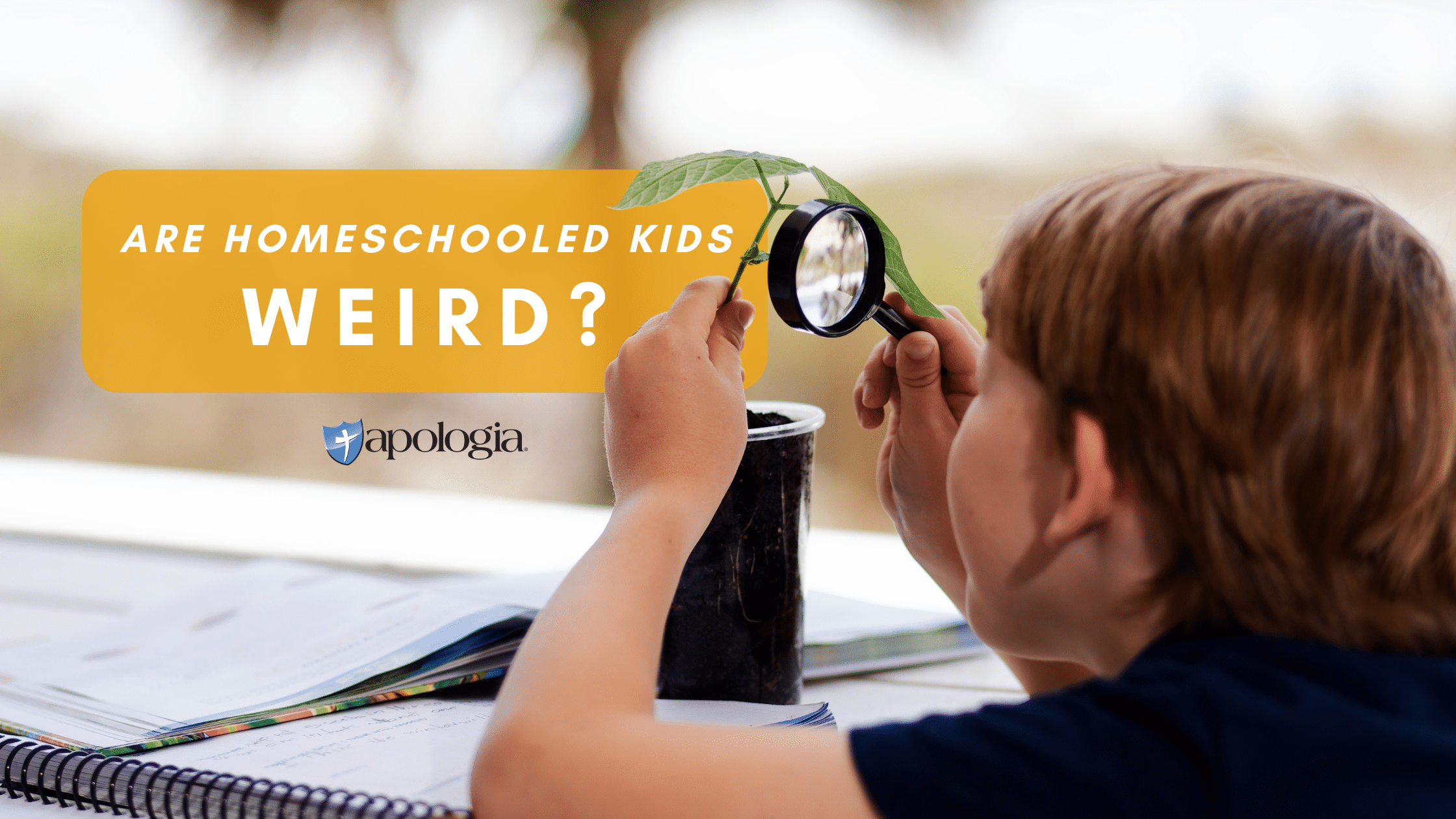
Are Homeschooled Kids Weird?
Are homeschooled kids weird?
As a homeschooling mom for the past 11 years, it is a fair question. I often encounter moms who are curious about homeschooling, but afraid their kids will somehow turn out weird. Or upon meeting my kids, they expressed their pleasant surprise that they seemed “normal.”
In reality, homeschooling provides a unique opportunity for families to choose a different path. Accommodating specific learning styles and pursuing passion projects becomes normal. Exploring discipleship within the family and taking the road less traveled becomes possible. While home education is a less standard choice, have we not all encountered children who have a weird moment, no matter their educational journey?
The myth of weirdness in homeschooling is still relevant, and in this post, we will touch on some of the reasons why. In addition, we will hear from veteran homeschooling moms who have some encouragement to share on this topic. If you’re curious about homeschooling, but worried that your kids will turn out weird, keep reading!
The Myth of “Weirdness” in Homeschooling
My first experience in meeting a homeschooling family was a family we were already close to. When they decided to try homeschooling with their first child, we had the honor of shadowing their choice. This allowed us to see their intentionality in not only choosing curriculum and processes, but also in how they spent time with their daughter.
The next experience I had with a homeschooling family was different. God gave me glimpses of why this myth of “weird homeschooled kids” was a thing. The children appeared somewhat socially unaware and in their own world—not rude, corrupted, or anything largely concerning, just a little out of touch.
Both experiences helped shape what would later become my own path in homeschooling for the next decade. Once God placed homeschooling in our path, I knew He wanted me to teach them to represent Him well. Providing opportunities and teachings on self-awareness and social cues were topics we would consider for His glory.
By choosing to homeschool, many things are naturally different:
- Homeschooled kids spend more time with their parents, and therefore, are more influenced by their parents than their peers.
- Homeschooled kids have a unique learning experience and environment.
- Homeschooled kids can tailor their education to meet their learning style (check out Exploring Creation with Mathematics as an example of how a curriculum can adapt to different learning styles).
- Homeschooled kids tend to have more freedom and flexibility in what they study and how they spend their time.
- Homeschooled kids can have stronger family bonds and develop emotionally and socially within that stability.
So, are homeschooled kids weird? The word “weird” is inaccurate, but homeschooled kids are different. That difference is a matter of perspective and prayer. What does God want for your family and your children?
Do not be conformed to this world, but be transformed by the renewal of your mind, that by testing you may discern what is the will of God, what is good and acceptable and perfect. -Romans 12:2
Insights from Alicia, Learning Well
The hesitation of many to homeschool is the fear that their kids will be outsiders—the weird kid. In many ways, I understand this because sometimes the fear of the unknown is the worst fear of all. Everyone probably has a different definition of weird, but I suspect
Alicia is the founder of Learning Well and Learning Well Journal and homeschooling mom to four. You can find her @learningwell on Instagram or learningwellcommunity.com.
Insights from Katie, Life in the Mundane
I grew up as a homeschooled kid. I can’t count the number of times I heard the backhanded compliment, “But you’re so normal!” when people found out I was homeschooled. What people really meant was, “You’re not what I expected a homeschooler to be.” The truth is, 
Now, as a homeschooling mom, I see this same “good weird” in my own children. One of my daughters has significant medical needs and developmental delays. In cognitive testing, the assessors were surprised by her confidence, even though she struggles academically. She kept repeating our family motto: “Practice makes progress, not perfection.” She knows her worth isn’t measured by grades or trends but by the truth that she is fearfully and wonderfully made in the image of God. That kind of “weirdness” is a gift, and I am thankful homeschooling gives us the freedom to grow and nurture that kind of ‘weird.’
You can find Katie at Life in the Mundane on YouTube and Instagram @lifeinthemundane. She is a 2nd-generation homeschooler with six children. Katie shares encouragement and resources for homeschoolers of varying learning styles and needs.
Socialization and Homeschooling
If you mention this word to a veteran homeschooler, they may roll their eyes internally. However, for new homeschoolers, it makes complete sense to ask this question and is a real concern. Since we spend the first half of the day with academics, Bible study, good books, and some play in the context of family, I knew I wanted to invest any additional time into others. I wanted to give my children the opportunity to have relational experiences to build, practice, and heal.
In the younger years, that looked like a lot of playdates—too many now that I look back. However, our kids had plenty of time to work out and navigate short-term and long-term friendships. In their older years, we have decided to join teams for extracurricular activities. In addition, being rooted in children’s and youth ministries has been helpful for ongoing fellowship. Finding a consistent community for your homeschooled children is a great need and opportunity for educating the whole child.
Conclusion
Homeschooling is not about aiming to be normal or weird. It is about equipping children for their future. God designed every child with unique strengths and weaknesses, and homeschooling empowers parents to know their children and meet their individual needs well.
To learn more, check out this episode of the Let’s Talk Homeschool podcast with guest, Whitney Newby of Brighter Day Press.



